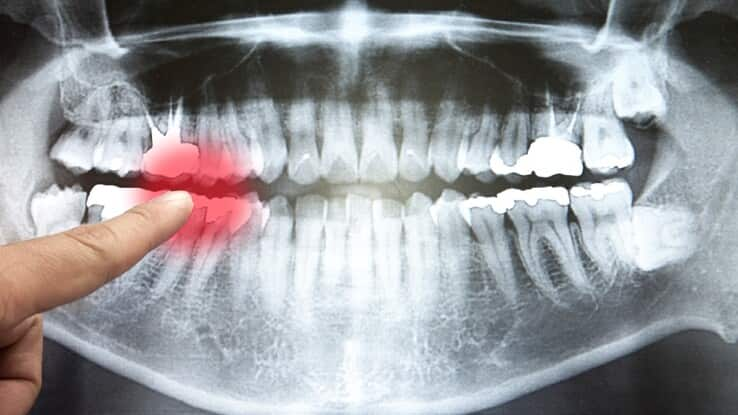
Losing your teeth may increase risk of heart attack
What's the story
A recent study has discovered a correlation between severe tooth loss and an increased risk of fatal heart disease. The research builds on previous findings that suggested missing one or more teeth could heighten the risk of heart and cardiovascular diseases (CVDs). CVDs, impacting the heart and blood vessels, remain the leading cause of death worldwide. The study was published in the Journal of Endodontics.
Worrying
Poor oral health is a risk factor
Poor oral health is recognized as a risk factor for cardiovascular diseases. The theory suggests that tooth loss or inadequate oral hygiene could enable harmful pathogens to infiltrate the gums, leading to infections that enter the bloodstream and trigger inflammation potentially affecting the heart. However, other factors such as smoking, exercise habits, cholesterol levels, diabetes, and blood pressure also significantly influence heart health and CVD risk.
Study findings
New analysis highlights severe tooth loss as CVD predictor
The recent analysis, led by Anita Aminoshariae, an endodontist and dental researcher at Case Western Reserve University in Ohio, focused on severe tooth loss. The study compiled data from 12 published studies that monitored oral and CVD outcomes over periods ranging from three to 49 years. "Our findings clearly show that tooth loss is not just a dental issue, but a significant predictor of cardiovascular disease mortality," said Aminoshariae.
Risk factors
It elevates risk of heart-related deaths
The analysis revealed that individuals who had lost most or all of their teeth had 66% higher risk of dying from heart-related issues than those who had lost only a few or no teeth. The association varied more across studies that examined people with fewer than 10 teeth remaining than it did among studies of people with no teeth left. However, the increased risk of dying from CVD remained evident among people who had lost approximately 22 or more teeth.
Health solutions
Improved oral health could reduce global CVD burden
While the analysis only indicates associations and not direct causes, it suggests that enhancing oral health could partially alleviate the global burden of cardiovascular diseases. This could involve providing better access to healthy foods and affordable dental care, particularly in low and middle-income countries and among older populations. In 2019, one-third of deaths worldwide were caused by CVDs including heart attack, stroke, clogged arteries, and heart failure.